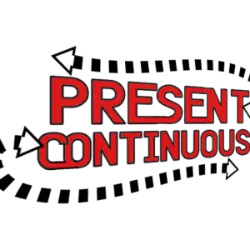prefixes and suffixes

Prefixes and suffixes are parts added to words to modify their meaning or grammatical function. In advanced English, understanding them broadens your vocabulary and improves your ability to interpret academic texts.
Prefixes (Before the root word)
They change the meaning of the base word.
Examples:
Un- (not): unhappy
Re- (again): rewrite
Mis- (wrongly): misunderstand
Suffixes (After the root word):
They can change the grammatical class.
Examples:
-ment (noun form): development
-able (adjective form): readable
-ly (adverb form): quickly
Example in Context:
The unpredictable weather forced us to reschedule the event, causing great disappointment.
Conditional Sentences express situations based on a condition

Conditional Sentences express situations based on a condition. We have four types:
Zero Conditional: universal truths.
Ex: If you mix red and blue, you get purple.
First Conditional: real possibility in the future.
Ex: If it rains, we will cancel the picnic.
Second Conditional: hypothesis in the present or future.
Ex: If I were rich, I would travel the world.
Third Conditional: regret or impossible past situation.
Ex: If she had studied, she would have passed.
Now, Phrasal Verbs are verbs combined with prepositions or adverbs that change their meaning. Examples:
Give up = give up
Ex: He gave up smoking.
Look after = take care
Ex: She looks after her grandma.
Take off = take off or take off clothes.
Ex: The plane took off at noon.
Test yourself with one of these challenges 👇
Discover some interesting facts about Advanced English
Shades of meaning (implied meanings)

Let's talk about nuances of meaning, that is, the implicit meanings in a sentence — what is not said directly, but which can be understood by tone, context or choice of words.
In advanced English, it is common to use expressions that have meanings beyond the literal. For example:
She’s quite the artist.
Here, quite the doesn’t just mean she’s an artist, but rather that she’s very talented — a subtle form of compliment.
I suppose you could try calling him again.
The use of I suppose shows hesitation or doubt — it’s not a direct suggestion, it’s something said cautiously.
He didn’t exactly help.
The not exactly implies that the person got in the way more than they helped, but without saying so directly.
You could have told me!
The sentence seems simple, but it carries a tone of frustration or disappointment — it’s not just an observation.
These nuances make it the most natural and expressive English. Pay attention to the tone, context and intention behind the words.
Verb tenses and moods

Let's review English verb tenses and moods — essential for expressing actions at the right time and with the right intention.
Present Simple: habitual actions or general truths.
Example: She works every day.
"
Present Continuous: actions in progress.
Example: He is studying right now.
Past Simple: actions completed in the past.
Example: They visited Paris last year.
Past Perfect: something that happened before another past action.
Example: She had left when I arrived.
Future with will
: promises or predictions.
Example: I will help you.
Future with going to
: plans and intentions.
Example: We are going to travel next month.
Now, the verb moods show the speaker’s intention:
Indicative: real facts.
Example: He speaks English fluently.
Imperative: orders or instructions.
Example: Close the door.
Subjunctive: wishes, hypotheses or suggestions.
Examples: If I were you, I’d apologize.
It’s important that he be on time.
Idiomatic expressions

Let's study idiomatic expressions, which are phrases that have a meaning different from their literal meaning. They are widely used by native speakers and are essential to sounding more natural when speaking English. Let’s look at some examples:
Break the ice – It means to break the ice or start a conversation, especially to ease a tense atmosphere.
Example: He told a joke to break the ice at the meeting.
Hit the nail on the head – To hit the nail on the head, to be exactly right.
Example: You hit the nail on the head with your analysis of the problem.
Bite the bullet – To face something difficult or unpleasant in a courageous way.
Example: I don't like going to the dentist, but I’ll bite the bullet and make an appointment.
Under the weather – To be feeling unwell, usually related to health.
Example: I can’t go to work today. I’m feeling a bit under the weather.
Burn the midnight oil> – Working late into the night.
Example: She burned the midnight oil to finish the project on time.
A piece of cake – Something very easy to make.
Example: The test was a piece of cake.
Proverbs in English

Proverbs in English are short, popular phrases used to convey wisdom, advice or life truths. They are part of everyday language and help to enrich communication.
Actions speak louder than words.
(Actions speak louder than words.)
It means that what you do has more value than what you say.
The early bird catches the worm.
(He who gets up early, God helps.)
It talks about the importance of acting quickly and not leaving it for later.
Don’t count your chickens before they hatch.
(Don’t count the egg before the chicken.)
A warning not to make plans based on something that hasn’t happened yet.
When in Rome, do as the Romans do.
(In Rome, do as the Romans do.)
In other words, adapt to the customs of the place you are in.
You can’t have your cake and eat it too.
(You can’t have everything at the same time.)
It talks about choices: sometimes, to have one thing, you have to give up another.
Direct and indirect speeches

Direct Speech and Reported/Indirect Speech, used to repeat what someone said, with or without quoting the exact words.
Direct Speech: we use the person's exact words, in quotation marks:
She said, I am tired.
(She said: I am tired.
)
Indirect Speech: we retell what was said, without quotation marks and with changes in verb tenses:
She said that she was tired.
(She said that she was tired.)
Important rules in indirect speech:
Verb tense goes back one step:
I like coffee. - He said (that) he liked coffee.
Pronouns change depending on the context:
I will help you. → She said she would help me.
Expressions of time and place also change:
today - that day
now - then
here - there
Complete example:
John said, I saw her yesterday.
- John said that he had seen her the day before.
Test yourself with one of these challenges 👇
HOME














